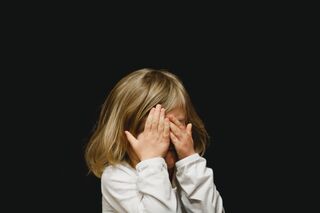Health
Treating Troubled Children
Finding the best road to wellness for your child.
Posted August 11, 2022 Reviewed by Lybi Ma
Key points
- There is more than one way to heal, treat, or ease the suffering of mentally distressed children
- Find a child mental health professional who is trained, registered, or licensed, and whose approach fits with your own values.
- Continue to nurture the bond with your child and take good care of yourself.

The great 19th-century philosopher, Friedrich Nietzsche, is said to have written, "and those who were seen dancing were thought to be insane by those who could not hear the music." Although it's rare these days to refer to emotionally and behaviourally disturbed children as insane, there is great wisdom in trying to tune in and listen to the music to which they appear to be dancing. Most child mental health professionals will be doing this as part of their assessment and management process. Looking for the sense and the meaning behind their difficult or strange behaviour might be central in the therapeutic process or it might be going on in the background, with the medical or psychological journey as the central focus.
Seeking help for troubled children can be confusing for parents. Different doctors and psychotherapists, books and websites will give contradictory answers to questions about children's disturbing behaviour. Perhaps parents seek out what they believe in and what feels most closely in line with their own world views. In a literature search, you will likely find evidence to support whatever you believe in, as well as evidence that argues against it. A Google search for cognitive behavioural therapy shows 45,900,000 results, and one for psychoanalytic psychotherapy shows 8,220,000 results. There are other legitimate forms of psychotherapy for children as well.
Childhood emotional, behavioural and mental problems can be viewed through various lenses and perspectives, including a postmodern one. In ancient times and in some cultures and religious communities today, for example, troubled children have been seen as being possessed by demons. More commonly though, psychoanalytic models, cognitive-behavioural approaches and various other theoretical frameworks and paradigms can be used to understand, explain, and treat childhood mental distress. Exploring and then changing certain narratives for and about the child can also be extremely powerful as a way to shift a child's experience of herself and the world that she inhabits.
Sport, the arts, learning a skill, hobbies and other extramural activities can be a vital part of your child's journey toward wellness. Changing attitudes and approaches to your parenting style and shifting your behaviour and emotions in various ways can be valuable. A child therapist might be able to offer insights about how best you can make these changes in ways that are suitable for your child under your unique circumstances.
The medical model offers a valuable path toward healing, even though psychiatric diagnostic classification is a human construct with many limitations. Diagnosing and treating children medically for mental distress is sometimes hotly contested but it can offer them the most effective relief from their suffering. The American Psychiatric Association’s Diagnostic and Statistical Manual of Mental Disorders (DSM) offers a description of how mental disorders are expressed and can be recognised by trained clinicians.
This document on psychopathology can be a highly useful tool in the process of making an accurate psychiatric diagnosis and formulating a constructive and therapeutic management plan for adults and for children. The DSM is often revised and updated and is now in the fifth edition. This is in line with a constantly changing world, collective shifts in human behaviour, necessary responsiveness to cultural diversity and ongoing research into mental disturbances and psychopathology.
Also used by psychologists, psychiatrists, and medical professionals is the International Classification of Diseases and Related Health Problems (ICD). This is a global World Health Organisation (WHO) initiative and it classifies all health information, including mental health. The ICD is currently in the tenth revision ( ICD 10) and it includes a section for mental and behavioural disorders. A transition is underway towards the use of the ICD 11. An additional diagnostic classification for infants and young children has been developed by the organisation, Zero to Three. In 1994, Zero to Three published their own manual, Diagnostic Classification of Mental Health and Developmental Disorders of Infancy and Early Childhood (DC:0-3). This has subsequently been updated to the DC:0-5 and it includes disorders occurring from birth to 5 years of age.
Knowledge, theory, and research about child psychology are vast; while at the same time there is so much that is not yet known about how to fix a broken or troubled mind. Child mental health today can be viewed through a multitude of different lenses. There are strongly felt, widely expressed, and often clashing opinions about what makes children unhappy and how to help them. The quest for the truth about childhood mental health involves much-heated debate among researchers, clinicians, academics, and the general public.
Most practitioners believe in their work and they are highly committed to their child patients, and to the theoretical framework within which they practise. Most approaches to child psychotherapy and other interventions aimed at improving child mental health do have substantial merit. The late Daniel Stern, a U.S. psychiatrist and psychoanalytic theorist, argued that it is the therapeutic alliance (the relationship between the therapist and patient) rather than theory that is really the essence of the cure in psychotherapy.
Your child's journey toward wellness is your journey, too. Build a team of professionals who you trust to help and support you and your child as you navigate this process. This team should include the therapist, doctor, and the school. Watching your child suffer through mental distress can be one of the most traumatic, painful, and gruelling aspects of being a parent. Continue to build a bond with your child and take special care of yourself. Your sanity, presence, and mental stability are central to your child's healing.
References
American Psychiatric Association. Diagnostic and Statistical Manual of Mental Disorders, 5th edition. Arlington, VA: American Psychiatric Association, 2013.
ICD-10. ‘International Statistical Classification of Diseases and Related Health Problems 10th Revision’.
Zero to Three. DC: 0-5: Diagnostic Classification of Mental Health and Developmental Disorders of Infancy and Early Childhood. Washington, DC: Zero to Three, 2016.




